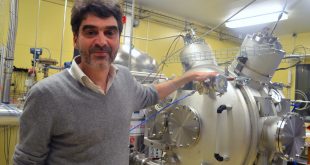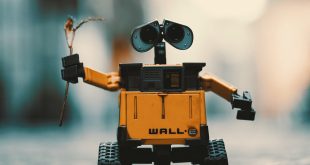At this beginning of the year 2020, I’MTech takes a look back at 10 of the most noteworthy articles from the past year. What scientific topics made headlines at the close of the 2010s and the dawn of the 2020s? A look at this pivotal year, in which unsurprisingly, AI and the environment feature prominently… but not exclusively! #1 …
Read More »Search Results for: Personal data
Is dark matter the key to the medical scanner of the future?
A team of researchers at IMT Atlantique is developing a new type of medical scanner called XEMIS. To create the device, the team drew on their previous research in fundamental physics and the detection of dark matter, using liquid xenon technology. The first time the device was tested was using small animals. It allowed the scientists to significantly lower the …
Read More »An “electronic nose” analyzes people’s breath to help sniff out diseases
In partnership with IMT Atlantique, a team of researchers at IMT Lille Douai have developed a device which can measure the level of ammonia in someone’s breath. The aim of the artificial nose is to use this device to create a personalized follow-up care for patients affected by chronic kidney disease. Eventually, the machine could even allow doctors to detect …
Read More »Light, a possible solution for a sustainable AI
Maurizio Filippone, Professor at EURECOM, Institut Mines-Télécom (IMT) We are currently witnessing a rapidly growing adoption of artificial intelligence (AI) in our everyday lives, which has the potential to translate into a variety of societal changes, including improvements to economy, better living conditions, easier access to education, well-being, and entertainment. Such a much anticipated future, however, is tainted with issues …
Read More »What is the physical internet?
The physical internet is a strange concept. It borrows its name from the best-known computer network, yet it bears little connection with it, other than being an inspiration for bringing together economic stakeholders and causing them to work together. The physical internet is in fact a new way of organizing the logistics network. In light of the urgent climate challenges …
Read More »Digital twins in the health sector: mirage or reality?
Digital twins, which are already well established in industry, are becoming increasingly present in the health sector. There is a wide range of potential applications for both diagnosis and treatment, but the technology is mostly still in the research phase. The health sector is currently undergoing digital transition with a view to developing “4P” treatment: personalized, predictive, preventive and …
Read More »From human feelings to digital emotions
Making powerful machines is no longer enough. They must also connect with humans socially and emotionally. This imperative to increase the efficiency of human-computer interactions has created a new field of research: social computing. This field is aimed at understanding, modeling and reproducing human emotions. But how can an emotion be extracted and then reproduced, based only on a vocal …
Read More »When AI helps predict a patient’s care pathway
Researchers at Mines Saint Etienne are using process mining tools to attempt to describe typical care pathways for patients with a given disease. These models can be used to help doctors predict the next steps for treatment or how a disease will progress. Will doctors soon be able to anticipate patient complications arising from a disease? Will they be …
Read More »AI in healthcare for the benefit of individuals and society?
Article written by Christian Roux (Director of Research and Innovation at IMT), Patrick Duvaut (Director of Innovation at IMT), and Eric Vibert (professor at Université Paris-Sud/Université Paris Saclay, and surgeon at Hôpital Paul Brousse (AP-HP) in Villejuif). How can artificial intelligence be built in such a way that it is humanistic, explainable and ethical? This question is central to discussions …
Read More »When Researchers and Visitors Stay up all Night
Every year, the European Researchers’ Night allows scientists and curious visitors to meet in over 200 European cities. The STORIES project, selected last May through the H2020 MSCA-NIGHT-2018 call for projects, will enable the CCSTI La Rotonde to join the national network and become the regional coordinator for this event, beginning in September 2019. As part of this project, Julie Fortin, in charge …
Read More » I'MTech L'actualité scientifique et technologique de l'IMT
I'MTech L'actualité scientifique et technologique de l'IMT









